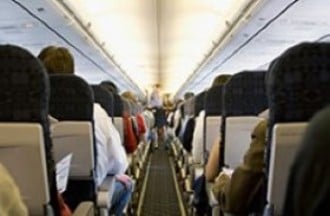
Translations:
- 国际航协呼吁各国遵循世卫组织跨境旅行指南 (pdf)
- IATA pide a gobiernos que sigan directrices de la OMS sobre viajes internacionales (pdf)
- IATA pede aos Estados que sigam as orientações da OMS sobre viagens internacionais (pdf)
The International Air Transport Association (IATA) called on states to follow new guidance on travel from the World Health Organization (WHO). The guidance recommends a “risk-based approach” to implementing measures related to COVID-19 and international travel.
Specifically, WHO recommended that governments:
- Do not require proof of COVID-19 vaccination as a mandatory condition for entry or exit
- May relax measures such as testing and/or quarantine requirements for travelers who are fully vaccinated or have had a confirmed previous COVID-19 infection within the past six months and are no longer infectious.
- Ensure alternative pathways for unvaccinated individuals through testing so that they are able to travel internationally. The WHO recommends rRT-PCR tests, or antigen detection rapid diagnostic tests (Ag-RDTs) followed by confirmatory rRT-PCR tests of positive samples, for this purpose.
- Implement test and/or quarantine measures for international travelers “on a risk-based manner” with policies on testing and quarantine regularly reviewed to ensure they are lifted when no longer necessary.
“These commonsense, risk-based recommendations from WHO, if followed by states, will allow for international air travel to resume while minimizing the chance of importing COVID-19. As WHO notes—and as the latest UK testing data proves—international travelers are not a high-risk group in terms of COVID-19. Out of 1.65 million tests carried out on arriving international passengers in the UK since February, only 1.4% were positive for COVID-19. It’s long past time for governments to incorporate data into risk-based decision-making process for re-opening borders,” said Willie Walsh, IATA’s Director General.
WHO also called on states to communicate “in a timely and adequate manner” any changes to international health-related measures and requirements. “Consumers face a maze of confusing, uncoordinated and fast-changing border entry rules that discourage them from traveling, causing economic hardship across those employed in the travel and tourism sector. According to our latest passenger survey, 70% of recent travelers thought the rules were a challenge to understand,” said Walsh.
Additionally, WHO encouraged states to look at bilateral, multilateral, and regional agreements, particularly among neighboring counties, “with the aim of facilitating the recovery of key socioeconomic activities” including tourism, for which international travel plays a vital role.
“The pandemic has put more than 46 million jobs, normally supported by aviation, at risk. By incorporating these latest WHO recommendations into their border opening strategies, states can begin to reverse the economic damage of the past 18 months and put the world on the road to recovery,“ said Walsh.
For more information, please contact:
Corporate Communications
Tel: +41 22 770 2967
Email: corpcomms@iata.org
Notes for Editors:
- IATA (International Air Transport Association) represents some 290 airlines comprising 82% of global air traffic.
- You can follow us at https://twitter.com/iata for announcements, policy positions, and other useful industry information.

